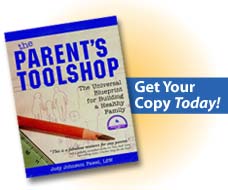After staying two hours late at work, Leah is frantically trying to make it to her daughter’s daycare.
With the continuous growling of her stomach as a constant reminder she thinks about what she can make or pick up for dinner before her eight year old son’s soccer practice.
She finally makes it to her daughter’s daycare, racing through the door and apologizing for her tardiness. She rushes to her daughter’s room eagerly awaiting her hug.
Stopped by her daughter’s teacher at the door, Leah begins to hear the bad news. Her daughter has bitten another child and this is the third time this week. The teacher explains that if this continues she will have to be separated from the other children and maybe even suspended for a week.
While searching her brain for a solution, Leah’s heart sinks as a reaction to her daughter’s potential fate. She asks herself, “What happened to my little angel? How did she become such a monster? Why is my toddler biting and what am I to do?
If you’ve ever experienced the horror, embarrassment and frustration of having a toddler who bites, you are not alone. Even though it seem like your child is the only one he is not.
Toddler biting is a common and fixable problem during these child development stages. In the past you may have resorted to time out, spanking, or even considered biting the child back, but these are not effective solutions, because they do not address the real root cause of the problem.
Resolve The Real Reasons Toddlers Bite
Toddler biting can have several root causes (usually consistent with child development stages), including:
- They are teething,
- They are angry,
- They cannot express their frustration verbally.
You need to address the real problems, with patience and hope. This aggressive behavior in children won’t go away overnight, but there are effective solutions to create better anger management techniques during this frustrating child development stage.
If your toddler is teething you can:
- Provide acceptable objects to bite, such as, a teething ring, blanket or washcloth. (Tear off a piece of washcloth and tie it comfortably around child’s wrist. Teach your child to bite it when upset. Soon the child will do this on his own)
If your toddler is angry and throwing a fit you can:
- Suggest ways to channel and “burn off” the angry energy. He can jump on a trampoline, stomp his feet, scribble hard on paper, or run circles in the yard or playground. This will not reward the behavior; it will provide an appropriate outlet the child will likely use on his own before he blows his top next time.
If your child is frustrated and can’t verbally express himself you can:
- Teach him the exact words to say when he’s upset such as:
- “Can I use that when you’re done?”
- “You hurt my feelings when…”
- If this still doesn’t work, teach your child to walk away and say, “I want to be alone.”
- If the child continues to have problems he should seek adult assistance.
Be a Good Role Model
Since parenting is a team effort between parent and child the second step is for you to look at yourself as a role model. This is the primary reason quick fixes like biting a child back will backfire.
To Know If You Are A Good Role Model, Ask Yourself:
- “How do I react when I am angry?”
- “What are my anger management techniques?”
- “What does my child see me do?”
- “What message does this send?” “What is my child learning from me?”
Tips To Being A Role Model For Your Children:
- Don’t say “Don’t”- Say what you want the child to do instead.
- For example, instead of saying, “Don’t hit” or “Don’t bite” tell the child what to do instead, “Keep your hands to yourself,” or “Teeth are for food only” while redirecting the toddler to one of the activities listed above.
- Don’t show what not to do- Show the child what to do.
- Be aware of your own anger expressions.
- If you slam doors, yell, slap or spank your child will do the same. They learn by your example and will imitate everything you do, not just what you tell them to do.
- When you are upset, talk to yourself out loud, knowing your little sponge is watching. If everything you do is in your head, your child can’t see or hear the helpful self-talk you use to calm yourself.
Biting is a frustrating problem for parents, so remember you are not alone in this. Have patience, be aware of your actions, and don’t give up.
As you learn and model appropriate anger management techniques your children will improve theirs as well.
For more tips and solutions to toddler biting and more information about The Parent’s Toolshop® and its unique Universal Blueprint® problem-solving system, get the 7 Keys to Parenting Success free ebook . You will be less frustrated, respond more calmly and feel more confident in any parenting situation.
The best part is the ebook is free! So what are you waiting for? Get rid of the stress and frustration of toddler biting by getting the ebook !
******************************************************************************
Jody Johnston Pawel, LSW, CFLE is the author of the award-winning book, The Parent’s Toolshop and president of Parent’s Toolshop Consulting, where she oversees an international network of Toolshop® trainers. She has 30 years experience as a top-rated speaker and parenting expert to the media worldwide, including serving as the Co-Producer and Parenting Expert for the Emmy-nominated Ident-a-Kid television series. She has interviewed many parenting experts on her Parents Tool Talk radio show and is a parenting expert columnist. She has produced almost 100 multimedia resources, which are available at her award-winning website, www.ParentsToolshop.com.
Reprint Guidelines: You may publish/reprint any article from our site for non-commercial purposes in your ezine, website, blog, forum, RSS feed or print publication, as long as it is the entire un-edited article and title and includes the article’s source credit, including the author’s bio and active links as they appear with the article. We also appreciate a quick note/e-mail telling us where you are reprinting the article. To request permission from the author to publish this article in print or for commercial purposes, please complete and send us a Permission to Reprint Form.


